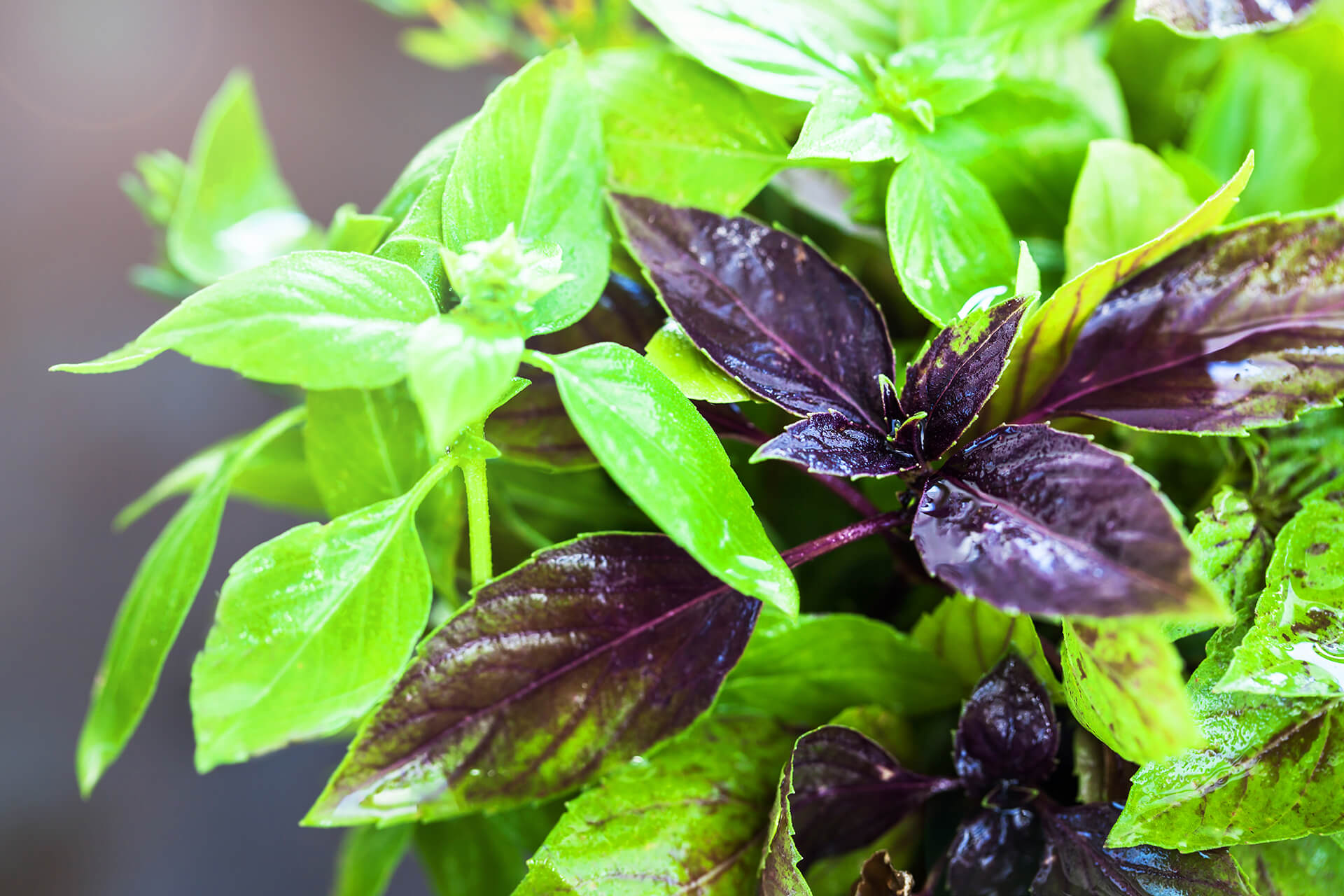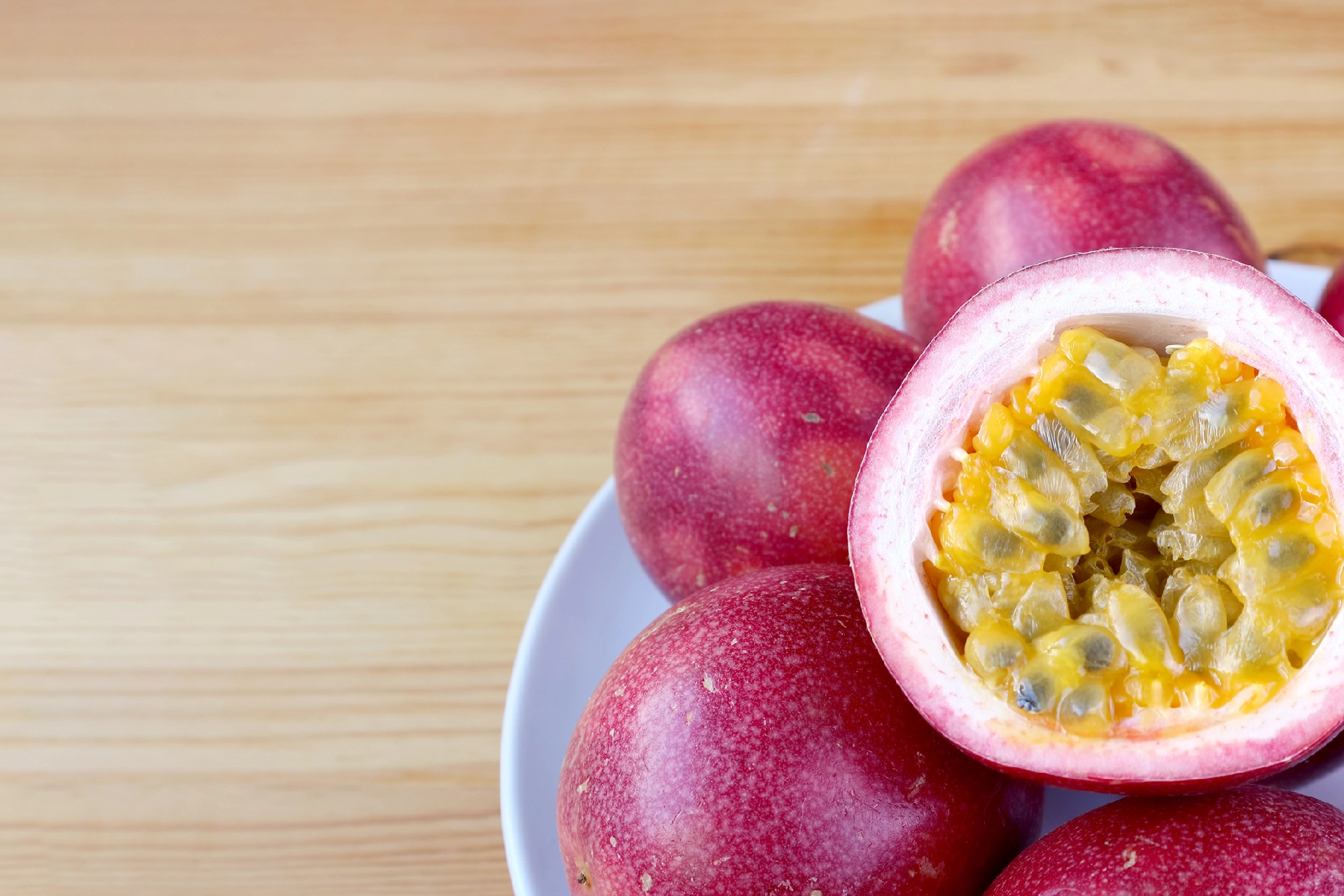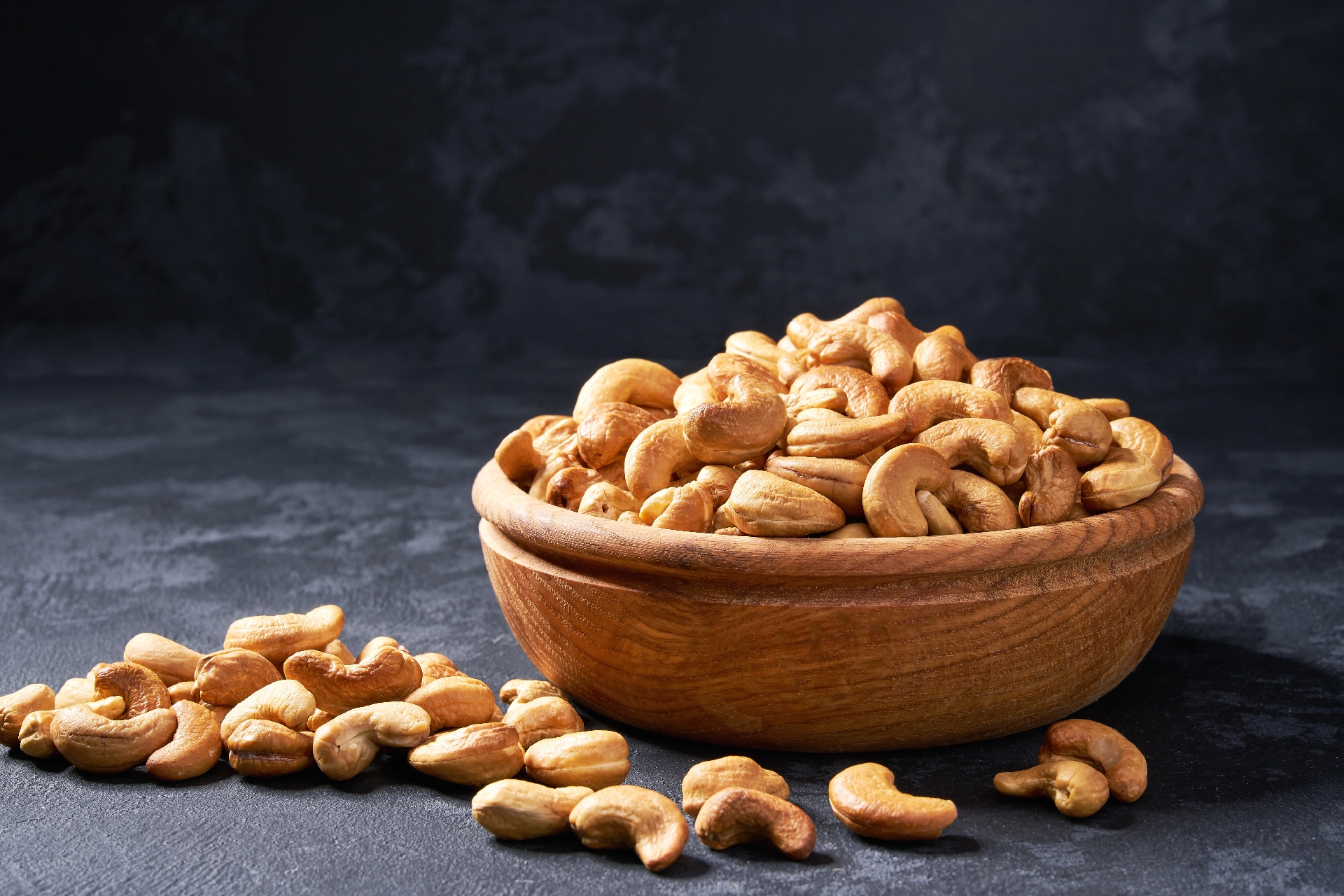General Physician | 10 min read
Basil Leaves: Nutritional Value, Health Benefits, Uses
Medically reviewed by
Table of Content
Key Takeaways
- Basil leaves are rich in calcium, vitamins, and other nutrients
- There are many types of basil leaves, each with their own benefits
- Basil leaves benefits both your physical and your mental health
Basil is a staple herb in almost every Indian household. It is a part of the mint family and is one of the most colorfully used herbs in the world. Basil leaves are used in different recipes, most often as a garnish due to their flavor. However, the reason for basil’s popularity is not just the flavor. It is also because of the nutritional and medicinal basil leaves benefits Each type of basil has its unique health benefits as per its composition.
Read on to know more about different types of basils and the benefits they bring to your plate.
Nutritional Value of Basil
Basil is used in relatively modest quantities in recipes; Thus, it doesn't provide many vitamins and minerals to ordinary diets.
The following nutrients are found in the highest concentration in 1 tablespoon (or 2 grams) of sweet Basil (2, 3).
Nutrients | Chopped Fresh Leaves | Crumbled Dried Leaves |
Calories | 0.6 | 5 |
Vitamin- A | RDI- 3% | RDI-4% |
Vitamin-K | RDI-13% | RDI-43% |
Calcium | RDI-0.5% | RDI-4% |
Iron | RDI-0.5% | RDI-5% |
Manganese | RDI-1.5% | RDI-3% |
All around Asia, different basil varieties, including Ocimum species, are grown. Asian basil is typically stronger than Mediterranean basil and has a flavor that is reminiscent of clove. Holy basil is widely used and known as "Tulsi" in India and Nepal. Lemon basil, which is highly common in Indonesia and contains the chemical citral, has a very potent aroma.
Eugenol, camphor (only found in African blue basil), anethole (only found in licorice basil), linalool, pinene, methyl chavicol, terpineol, and myrcene are among the several essential oils that are typically found in basil leaves.
Tulsi leaves are rich in minerals like calcium, magnesium, phosphorus, iron, and potassium, as well as vitamins A, C, and K. It also has a good amount of protein and fiber. It should be noted that you will ingest far less Tulsi when consumed as a herb.
Types of Basil Leaves
There are many types of basil leaves but some of the common types are:
- Sweet basil
- Holy basil
- Lemon basil
- Curly basil
Basil Leaves Benefits For Body and Mind
Here are some of the common basil leaves benefits for health.
Supports Liver Health
Liver is a vital organ that plays an important role in your metabolism. The detox properties of basil help in maintaining a healthy liver and preventing a buildup of fat. According to a study, the antioxidants of holy basil had a positive impact on liver health. [1]

Reduces Oxidative Stress
This leaves are rich in antioxidants. These help fight oxidative stress by eliminating free radicals from your body. Oxidative stress is linked to a number of health conditions, including cancer [2]. While your body normally produces antioxidants to reduce oxidative stress, you may also need to increase your antioxidant intake. Basil contains two water soluble antioxidants that help boost your immune system and protect your cellular structures.
Helps Prevent Cancer
As per a review, the phytochemicals of holy basil may help prevent cancer [3]. The study was conducted by increasing the activity of antioxidants, triggering cell death, changing expression of genes, and slowing the cell division process. According to some studies, certain compounds present in basil leaves are a rich source of anticancer materials [4].
Reduces High Sugar Levels
Having these leaves may lead to a slow release of sugar in your blood. Basil is also low on the glycemic index. A study in 2019 concluded that a sweet basil leaves extract helped in reducing blood sugar levels. It also revealed that the leaves may help treat long-term effects of high sugar. This confirms that an extract of basil leaves may be helpful for diabetic patients [5].
Additional read: Home Remedies To Control SugarImproves Brain Health
The essential oil of basil may help manage and fight anxiety and depression. The herb stimulates neurotransmitters that regulate happiness and energy inducing hormones. It is also a powerful anti-stress agent due to its immune boosting and anti-inflammatory properties.
Supports Heart Health
From healthy vision to heart health, vitamin A has a number of benefits. Basil, a vitamin A-rich food, is essential for overall health. As per a study, having fresh basil leaves for 4 weeks led to a positive change in cholesterol levels. There was a significant decrease in LDL and increase in HDL [6]. Being rich in calcium, basil also helps your heart function properly. The eugenol present in basil leaves helps in lowering your blood pressure too.
Fights Infection
The use of basil as microbial agent in traditional medicine has been supported by research. According to a study, sweet basil oil was active against various strains of E. Coli. It found that some basil oil preparations may be helpful in preventing certain types of infections [7].
Reduces Swelling and Inflammation
Inflammation can be a contributing factor for various health conditions. With its anti-inflammatory properties, basil may help in treating some of these disorders. As per research, basil oil may be used to treat diseases due to inflammation resulting from oxidative stress [8].
Promotes Healthy Skin
From clearing acne to cleansing skin, basil leaves benefits for skin are too many to count! The oil in basil helps cleanse your skin from within. Its antimicrobial and anti-inflammatory properties help in clearing and preventing acne formation too. It is perfect for those with oily skin as it removes impurities and dirt that normally clog pores.
Additional read: Want Glowing Skin and Flowing Hair?Basil Leaves Uses
There are several applications for basil leaves, including treating head colds, worm infections, warts, and stomach cramps. Additionally, it cures stomach gas, renal problems, and appetite loss.
Suitable for Digestion
Basil supposedly aids in promoting good digestion, according to the DK Publishing book "Healing Foods." According to the book, "basil strengthens the digestive and neurological systems and might be a useful cure for headaches and sleeplessness." The eugenol in the leaves guarantees that there are no gastrointestinal inflammatory effects. In addition, Basil aids in the body's acid balance regulation and Ph restoration.
Anti-inflammatory
Basil has potent anti-inflammatory qualities that may help treat various illnesses and conditions. Through their ability to block enzymes, potent essential oils like eugenol, citronellol, and linalool reduce inflammation. Inflammatory bowel diseases, rheumatoid arthritis, and heart disease risk may all be reduced due to basil's anti-inflammatory characteristics. In addition, other symptoms, including fever, headache, sore throat, cold, cough, and flu, can be treated with Basil by taking it orally.
Skin Advantages
The powerful basil oil promotes interior skin purification. The excellent skin cleanser will be beneficial for people with oily skin. It also helps to remove dirt and other impurities from pores. Make a paste from the basil leaves, rose water, and sandalwood paste. Before washing the paste off your face, leave it for 20 minutes to dry. Then, with cold water, wash it off. Basil has potent anti-inflammatory and antibacterial qualities that might aid in preventing acne from developing.
Culinary Uses
Basil leaves’ uses in cooking are many. You can include them in your recipes or use them as a garnish. Basil leaves can be used in soups, marinades, sauces, or in salads. You can also grow basil leaves at home so that you can use this herb fresh!
Remedial Uses
As a medicine, basil leaves may help treat problems such as
- Intestinal gas
- Worm infections
- Warts
- Loss of appetite
- Stomach spasms
Delicious Indian Recipes With Basil Leaves
Basil-leafed daal
Enjoy this tasty and nutritious daal, which will tickle your taste buds!
This is how to do it!
Ingredients:
- Water - 1.5 cups
- Moong or Toor Dal - 0.5 cups
- 0.5 teaspoons of turmeric powder
- Two green chillies
- 0.5 teaspoons of cumin seeds
- 0.5 teaspoon mustard seeds
- One teaspoon of ginger-garlic paste
- 0.25 cups of basil leaves
- 0.25 cups of sliced onion
- One teaspoon salt
- One teaspoon of oil/ghee
Procedure:
- Wash and soak the dal for 30-40 minutes
- Remove water and pressure-cook for three to four whistles with freshwater, turmeric powder, and a dash of salt
- Permit the natural release of pressure
- Use a pan with hot oil or ghee. When heated, add the mustard and cumin seeds, and watch them sputter
- Finely mince the green chilli, onions, ginger, and garlic paste, and add to the pan. Fry for 5 minutes or until the onions start to turn light brown
- Next, combine cooked dal, turmeric powder, salt, and roughly cut basil leaves
- Bring it to a boil and adjust consistency, if necessary, by adding warm water
- After five more minutes of simmering, extinguish the flame
Instant Mojito with Basil Leaves and Strawberry
You can use the herbal values of basil leaves along with Strawberries to make a fresh mojito.
Ingredients:
- Strawberry Crush – ¼ Cup
- Basil leaves- ¼ cup
- Chopped Basil- ¼ Cup
- Lemon Slices - 4
- Salt – Required Amount
- Black Pepper – Required Amount
- Chilled Sprite- 2 ¼ cups
- Ice Cubes- 15
Preparation:
- Add strawberry crush, basil leaves, and lemon slices along with the required amount of salt and pepper into a mortar and crush them
- Now, add them into a bowl and pour the required amount of chilled Sprite
- Take a serving glass and pour some water along with ice cubes
- Now transfer the strawberry and basil leaves mixture into that glass
- Tasty Mojito is ready now. You can serve it immediately
Basil-infused tomato rice with a spice
You will appreciate it once you've eaten this lovely rice dish. Look at the recipe now!
Ingredients:
- Two medium-sized tomatoes
- 1 cup cooked rice
- 0.25 cup basil leaves
- Two finely chopped green chillies
- One teaspoon of oil or ghee
- One teaspoon of black pepper powder
- A splash of garlic-ginger paste
- Salt: 0.5 teaspoon
- Two sprigs of chopped coriander leaves
Procedure:
- Till the skin starts to peel, boil the tomatoes
- Remove the skin, then shave off tiny sections
- Use a pan with hot oil or ghee. Add green chilli, garlic, and ginger paste after it's heated, and sauté for one minute
- After 1-2 minutes, add the tomatoes and basil leaves
- Mix thoroughly after adding salt, black pepper, and cooked rice
- After a few minutes of cooking, turn off the burner
- Serve hot and garnish with coriander leaves
Tea with Basil Leaves
This nutritious tea with extra health advantages will make you feel better. Try it now!
Ingredients:
- 7-8 basil leaves
- 1 cup of organic honey
- 0.25 teaspoons of cardamom powder
- A pinch of Cardamom Powder
Procedure:
- Basil leaves, cardamom powder, and water are added to a pan that has been heated
- Let it boil for three to four minutes before simmering it until the liquid turns fragrant
- Switch off the flame, then pour the liquid into a cup
- Add honey and serve hot
Side Effects of Basil Leaves
Basil is usually safe to consume in moderation. However, some safety precautions are advised before taking it. Take a look below:
- Basil leaves' high vitamin K content promotes blood clotting. High intakes could conflict with medications that thin the blood, such as warfarin
- Aim for regular vitamin K intake daily if you take a blood thinner so your doctor can adjust your dosage. Eating meals that include a lot of Basil, like pesto, could make this challenging
- Contrarily, basil extracts, such as those in supplements, might cause blood thinning, which can be problematic if you have a bleeding issue or are about to have surgery
- Additionally, basil supplements should be avoided by people using blood pressure medications or medications for diabetes since they may drop blood pressure and blood sugar levels. Your medication dose may need to be reduced by your doctor
- Avoid using holy Basil if you are trying to get pregnant or are already pregnant. Supplements containing holy Basil may impair sperm quality and cause labour contractions in pregnant women, according to research on animals. Unknown risks may exist while nursing
- Despite the rarity of basil allergies, a few cases have been reported in people who had an adverse reaction to pesto
The extract of basil leaves is also used for treating skin infections, cuts, or wounds. Being an iron rich food, basil leaves also help boost your immunity. As a vitamin K-rich food, basil helps in forming blood clots thereby preventing blood loss. While basil leaves also help treat and prevent certain medical conditions, don’t rely on them as a cure. If you have any persistent symptoms, consult your doctor immediately. You can book an in-clinic or online doctor consultation on Bajaj Finserv Health in minutes. Get your health on track and start having more basil in your diet!
References
- https://www.ncbi.nlm.nih.gov/pmc/articles/PMC4766851/
- https://www.ncbi.nlm.nih.gov/pmc/articles/PMC4310837/
- https://pubmed.ncbi.nlm.nih.gov/23682780/
- https://pubmed.ncbi.nlm.nih.gov/25554015/
- https://www.ncbi.nlm.nih.gov/pmc/articles/PMC6542390/
- https://pubmed.ncbi.nlm.nih.gov/7883302/
- https://www.ncbi.nlm.nih.gov/pmc/articles/PMC6270641/
- https://www.ncbi.nlm.nih.gov/pmc/articles/PMC5495712/
Disclaimer
Please note that this article is solely meant for informational purposes and Bajaj Finserv Health Limited (“BFHL”) does not shoulder any responsibility of the views/advice/information expressed/given by the writer/reviewer/originator. This article should not be considered as a substitute for any medical advice, diagnosis or treatment. Always consult with your trusted physician/qualified healthcare professional to evaluate your medical condition. The above article has been reviewed by a qualified doctor and BFHL is not responsible for any damages for any information or services provided by any third party.






